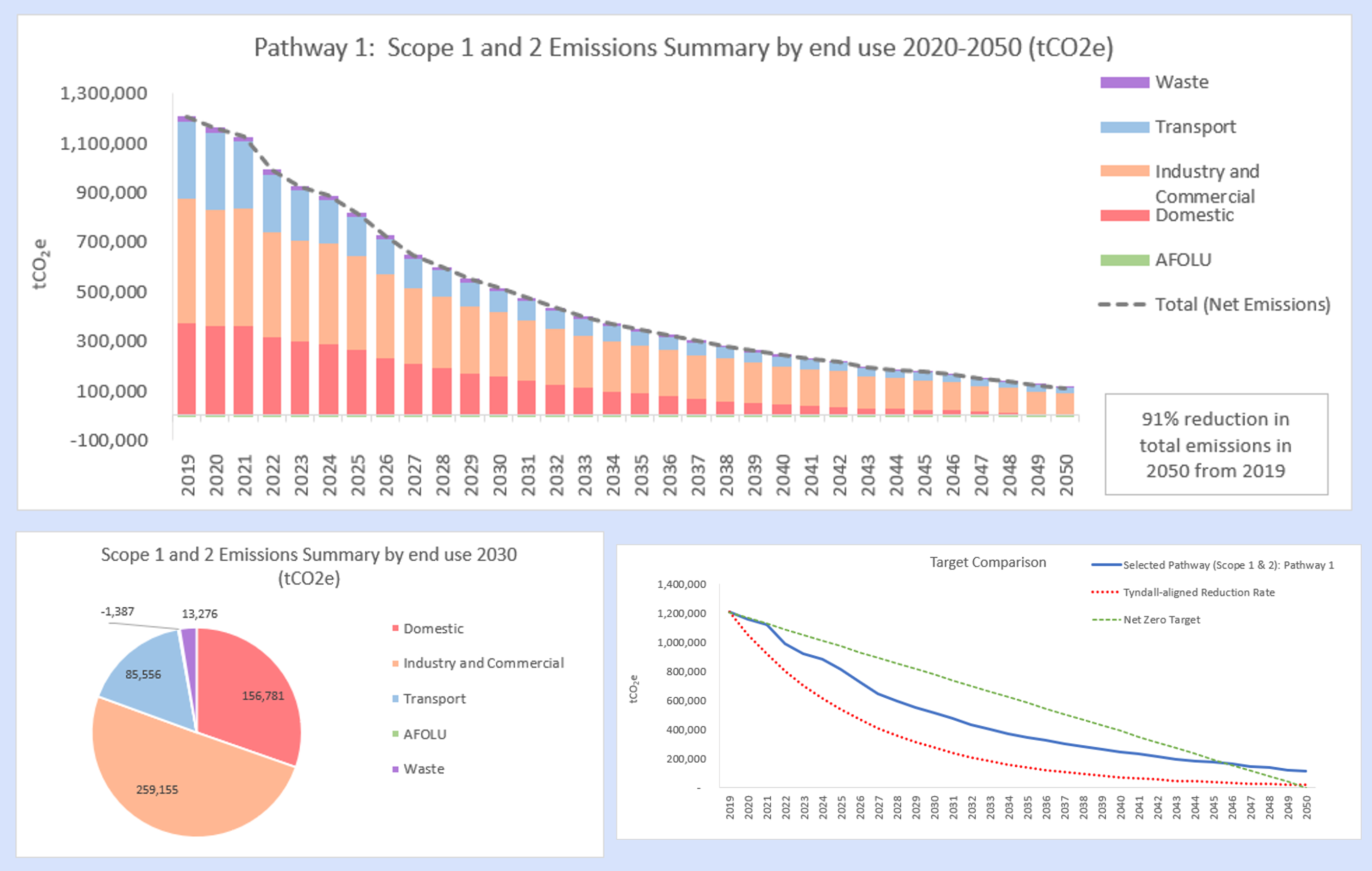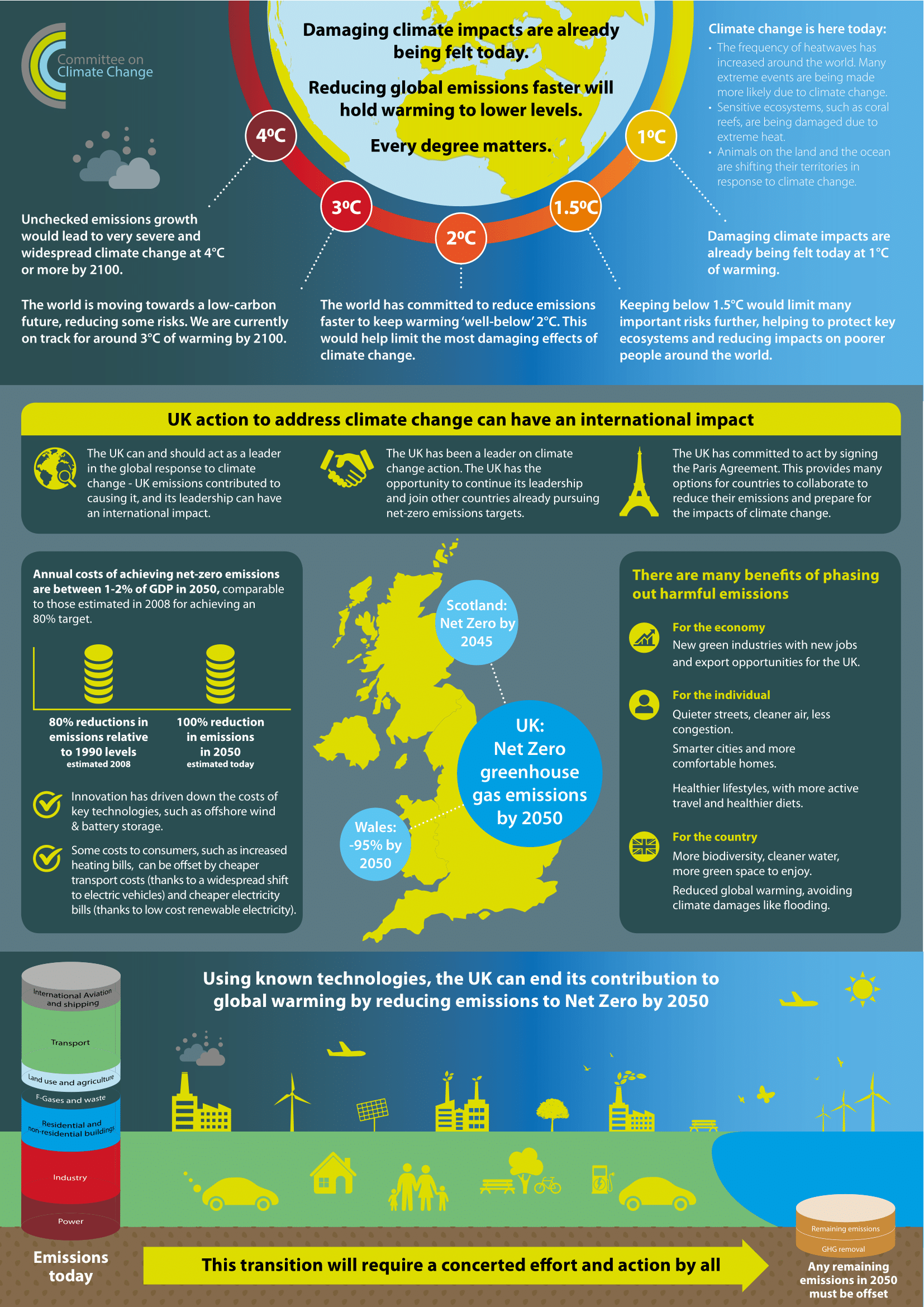
What is SCATTER?
- S Setting
- C City
- A Area
- T Targets and
- T Trajectories for
- E Emissions
- R Reduction
SCATTER is a local authority focussed emissions measurement and modelling tool, built to help create low-carbon local authorities. SCATTER provides local authorities and city regions with the opportunity to standardise their greenhouse gas reporting and align to international frameworks, including the setting of targets in line with the Paris Climate Agreement. Its use is free of charge to all local authorities in the UK.
Please listen to the podcast below for an introduction to the tool, including its aims and key benefits.
The SCATTER tool:
- Generates a greenhouse gas emissions inventory following the Global Protocol for City-wide Greenhouse Gas emissions for your local authority area
- Helps the understanding and development of a credible decarbonisation pathway in line with emissions reduction targets
- Provides outputs that can be used for engagement to create a collaborative carbon reduction approach for local authorities
 Anthesis is funded by the Department for Energy Security and Net Zero (DESNZ, formerly BEIS) through the Midlands Net Zero Hub to develop SCATTER and to take forward enhancements to the online tool for this year.
Anthesis is funded by the Department for Energy Security and Net Zero (DESNZ, formerly BEIS) through the Midlands Net Zero Hub to develop SCATTER and to take forward enhancements to the online tool for this year.
Inventory
We have now updated the SCATTER Inventory tool to show emissions inventories based on 2019 data as of June 2022. This includes an explanation of the changes to the underlying data from which emissions are calculated, compared to 2018. Click on the Inventory 'Create a Report' page to download your local authority area emissions inventory for 2019.
Anthesis has also estab lished a formal partnership with CDP, a global not-for-profit organisation that helps companies and cities disclose their environmental impact, to become its first UK Cities Accredited Solutions Provider. This will help ensure that our recommendations are aligned with international best practice on monitoring and reporting.
lished a formal partnership with CDP, a global not-for-profit organisation that helps companies and cities disclose their environmental impact, to become its first UK Cities Accredited Solutions Provider. This will help ensure that our recommendations are aligned with international best practice on monitoring and reporting.
"I am delighted that Anthesis have renewed their partnership with CDP as a silver cities consultancy accredited solutions provider in UK. Their use of industry leading tools such as SCATTER and consultancy services empower cities to reduce emissions, enable a just transition, reduce the impacts of climate change .”
Maia Kutner - Global Director of Cities, States and Regions at CDP.
Pathways
As part of this funding, we have developed an improved version of SCATTER Pathways, which is now available in an Excel-based tool. Local Authorities can now use this new version of Pathways to model set emissions scenarios and compare them to local targets. This Pathways tool will now allow you to:
- Choose from 5 pre-set scenarios combining over 30 interventions to model future emissions.
- Compare your scenario against your local area target.
- Compare your scenario against an annual reduction rate aligned with the Paris Agreement.
- Understand the scale of action needed to work towards your goals.
- Build an evidence base for your climate strategy and action plans.
- You can access the new Pathways tool by clicking the ‘Pathways Tool’ page.
The development of SCATTER provides a great opportunity to support a range of Local Authorities in taking their first steps along the journey to becoming carbon neutral, a journey which Nottingham City Council are also on. We’re really pleased to be part of the next phase of the project, aiming to increase the usability and accessibility of this free-to-use resource. We hope that SCATTER, with its city/regional inventory, carbon budget, reporting outputs and emission reduction pathway scenarios, will help support ambitious carbon reduction objectives around the country, such as Nottingham’s own aim to be carbon neutral by 2028.
Wayne Bexton, Director of Environment and Sustainability at Nottingham City Council.
Anthesis director, Brad Blundell, saidWorking out what actions will have the greatest impact as cities and city-regions look to reduce carbon emissions is a complex task. Turning those actions into a workable plan that is broadly supported by stakeholders is equally challenging. This is where SCATTER comes in, simplifying the measurement of emissions, helping cities to model scenarios, set reduction targets and take action.
Future improvements
We will soon be releasing functionality to the Inventory tool to allow users to download 2017 and 2018 inventories in addition to 2019. We will be in touch again when this functionality is live. We will also be exploring ways to improve Pathways.
Feedback
We are always looking for feedback on how to improve the SCATTER tool. Please send any comments or questions to scatter@anthesisgroup.com.
An example of the outputs of the inventory and pathways tool
1
An exportable greenhouse gas emissions inventory for your local authority
An exportable greenhouse gas emissions inventory for your local authority
This is aligned with the Common Reporting Framework from the Global Covenant of Mayors’
2
A range of visual, easy to understand emission scenarios up to 2050
A range of visual, easy to understand emission scenarios up to 2050
These different scenarios are based on the adoption or application of a number of emission reducing inventories.

How can your carbon footprint be reduced?
How can your carbon footprint be reduced?
The SCATTER tool enables the user to choose ambition levels across over 30 emissions reduction interventions.
Interventions by consideration to reduce emissions are broken down into six areas:
![]()
The IPCC 1.5°C report called for urgent climate action by 2030.
This has led to towns and cities across the UK declaring a climate emergency and setting ambitious carbon reduction commitments. The publication below summarises the recent Committee on Climate Change report that set out a response and recommendations to the IPCC report for the UK. The CCC have recommended a new 2050 target of reducing all greenhouse gas emissions to Net Zero. The SCATTER tool is a free resource for all UK Local Authorities to support crucial aspects of any carbon reduction plan.

Supporting local authorities to measure greenhouse gas emissions and build carbon reduction plans.
A collaboration between Anthesis Group, Nottingham City Council, DESNZ (formerly BEIS), Greater Manchester Combined Authority and the Tyndall Centre for Climate Research at the University of Manchester.
